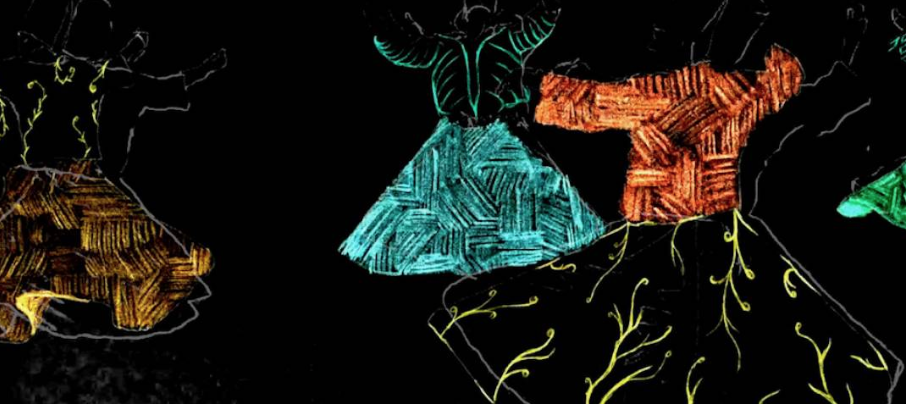Milo Kremer PO ’20
Sept. 26, Vol. XXIX, Issue 1
My semester abroad in Dakar, Senegal, shed light on the embarrassing number of false preconceptions I’d internalized about Islam. My host family, the Diongues, strictly followed the Sharia, praying five times a day, sometimes for an hour at a time. My 27 year-old host-sister was the principal bread-winner and would immediately don a black hijab upon coming home from her banking job. I never saw my father without prayer beads – his chapelets – in hand. Living for four months with this deeply religious Sufi family made for daily lessons in the tradition of Islam and its Sharia, particularly in the Sufi tradition.
Mention “Sharia” in Western democracies, and you’ll probably be hit with a wave of critiques from politicians, newscasters, and rank-and-file voters alike. On both sides of the Atlantic, Islam and its divine law are seen as a menace to societies that enshrine democracy, secularism, and universal human rights. Recently, this divide has been playing out on the juridical level – the most incriminating of these indictments being levied against the Sharia.
Following the election of Rashida Tlaib and Ilhan Omar, the first Muslim women in Congress, to the House of Representatives, Fox News host Jeanine Pirro warned that the Sharia is “antithetical” to the United States Constitution. The UK’s nationalist-in-chief Nigel Farage has claimed that 80 Sharia “courts” in the UK operate in defiance of British law. Even the European Court of Human Rights judges the Sharia as fundamentally incompatible with Western democracy. Mouth pieces for Western democracy in the media, legislatures, and courts all warn that the Sharia is an existential threat.
This kind of fear-mongering puts the West in a bind. After all, a pluralistic democracy must be able to absorb the political and cultural needs of its minorities – especially those that are as large as the Muslim population in the US, UK and France. By condemning Islam’s divine law in such unequivocal terms, critics of the Sharia are undermining the very Western ideals that they claim to defend; their critiques become self-inflicted wounds. This failure could be due to a misunderstanding of what the Sharia actually entails.
It would be in the West’s best interest, therefore, to better understand and relate to Sharia principles in order to achieve a more perfect union. Especially In Sufi traditions, the Sharia can inspire a robust framework to protect the kinds of human rights and privileges that we associate with the Western ideals.
To define the Sharia as “Islamic law” is misleading. While most Western democracies maintain a codified collection of rules and regulations that we understand as “law”, the Sharia refers to an overarching ideal that God has imagined – as manifested in the Quran and Sunnah – for an ideal muslim community. This image is to be decoded by Muslims themselves. If this sounds nebulous, that’s because it is. Therein lies the built-in dynamism of a Sharia that is often, and incorrectly, viewed as a single code, outdated and rigid.
When Fox News, Nigel Farage, or the European Court of Human Rights disparage the entire Sharia, they fairly allude to hudduds, or punishments such as stoning and forced amputation for certain kinds of criminals. Unfairly, this allusion comes at the expense of the rest of the Sharia, which provides each Muslim with both the freedom and the obligation to understand how God’s image should be realised through personal study and reflection. These hudduds are the results of some scholars’ understandings from more than a millennium ago. The upshot: mainstream reformer scholars such as Tariq Ramadan are pushing for, and achieving, reinterpretations and erasures of cruel hudduds.
In a Sufi tradition, the Sharia can also be a powerful tool to ground the kinds of human rights and privileges desirable in the West in an Islamic logic. Sufism, rarely politicized and often marginalised in Western reflections on Islam, can inspire a robust framework for these rights and privileges.
Broadly, Sufism is a spiritual branch of Islam whose followers seek an individual connection with God through internal meditation combined with practices of asceticism or ecstatism. These internal mediations are guided by two main principles: Tawhid and Ijtihad. The notion of Tawhid, or God’s omniscient presence, guides Sufis to view all humans as small physical manifestations of God’s total and intangible existence. Therefore, the universal dignity of all humans is inherent in a Sufi understanding of Tawhid.
Ijtihad empowers each Sufi to independently understand God’s truth – part of which being found the Sharia – through a logical reflection and study of holy texts. Therefore, interpretation of the Sharia becomes democratized; each follower is to construct their own understanding of the Sharia –– one that, by default, has to respect human dignity (Tawhid) and individual freedom of thought (Ijtihad). Ijtihad protects against the top-down, heavy-handed impositions that define the kind of Sharia that colors the views of many Western commentators.
While Tawhid and Ijtihad are inherent protections of above-mentioned fundamental rights, Sufi logic can also avoid the outdated and rigid rules of millenia-old Sharia interpretations.
It is possible (and preferable) to ground the protection of universal human rights in the Sharia, with Sufism providing a fitting framework to do so. As Islam continues to be assaulted by Western commentators, Sufism is a strong counterpoint to those who see the Sharia as incompatible with Western democracies.
Image Credit: Kano Wins



